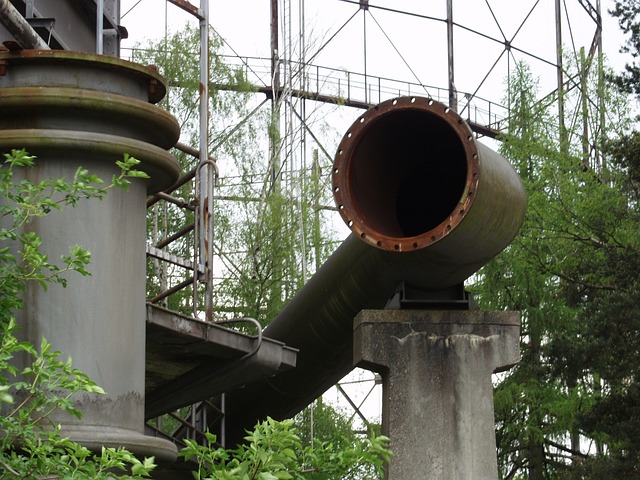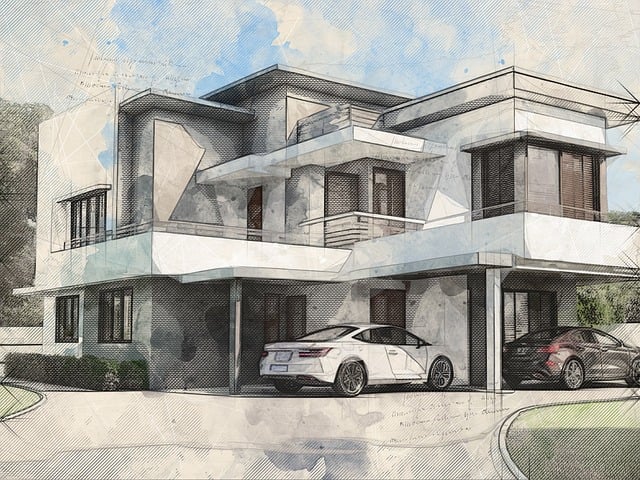Pipe corrosion, a widespread plumbing issue, results from interactions between materials and substances like water, especially in moist, high-humidity environments. Common causes include acidic or basic materials (pH imbalance), electrical current (electrolysis), and poor material selection. Different pipe materials have varying resistance to corrosion; while metal pipes are susceptible, plastic pipes like PVC offer high resistance. Understanding these common causes is crucial for selecting appropriate pipes and preventing costly damage in both residential and industrial settings.
In the realm of plumbing, pipe corrosion stands as a significant challenge, impacting everything from water supply lines to industrial systems. Understanding the common causes behind this degradation is crucial for maintaining efficient and safe infrastructure. This article delves into the intricacies of pipe corrosion, exploring not just the typical culprits like water chemistry and material choices but also surprising factors such as electrolysis, pH imbalance, pressure fluctuations, and contaminants. By shedding light on these diverse causes, we aim to equip readers with comprehensive knowledge for effective prevention strategies, ensuring prolonged pipe lifespan.
- Understanding Pipe Corrosion: The Basics
- – Definition and significance of pipe corrosion
- – Types of pipe materials and their susceptibility
Understanding Pipe Corrosion: The Basics

Pipe corrosion is a widespread issue that can lead to significant problems in plumbing systems. Understanding the basics and common causes behind this process is essential for prevention and maintenance. Corrosion occurs when certain materials, such as metals, react with water or other substances, leading to their deterioration over time. This phenomenon is accelerated by various factors like pH imbalance, electrolysis, and even seemingly unrelated issues like temperature fluctuations and moisture content.
The most common causes of pipe corrosion include exposure to corrosive substances, high humidity environments, and inadequate plumbing materials. For instance, copper pipes can corrode when exposed to acidic water, while steel pipelines may suffer from galvanic corrosion due to the presence of both steel and non-steel components in proximity. Electrolysis, a process where electricity facilitates corrosion, can also play a significant role, especially in complex plumbing setups.
– Definition and significance of pipe corrosion

Pipe corrosion is a significant issue in various industrial and residential settings, leading to costly repairs and maintenance. It refers to the gradual deterioration of pipes due to chemical or electrochemical reactions, primarily caused by exposure to moisture, gases, and certain substances. This process can compromise the structural integrity of pipes, resulting in leaks, blockages, and even failure over time.
Understanding common causes of pipe corrosion is essential for prevention and effective management. Factors such as pH imbalance in water, electrical current flow (electrolysis), and exposure to corrosive materials like acidic or basic substances are major contributors. For instance, electrolysis occurs when an electric current passes through a conductive fluid, leading to localized corrosion. Moreover, inappropriate material selection, poor maintenance practices, and environmental factors further exacerbate pipe corrosion, underscoring the need for proactive measures to safeguard piping systems.
– Types of pipe materials and their susceptibility

Different materials used in pipes have varying levels of susceptibility to corrosion, which is one of the common causes of pipe corrosion. For instance, while metal pipes like iron and steel are robust and widely used, they can still corrode over time due to factors like moisture, carbon dioxide, and sulfate ions present in water. These elements accelerate oxidation, leading to rusting and potential structural damage. On the other hand, plastic pipes, such as PVC (polyvinyl chloride), are highly resistant to corrosion because of their non-metallic composition, making them a popular choice for various applications.
Other materials like copper and its alloys exhibit excellent resistance to corrosion but can still experience pitting or crevice corrosion in specific conditions. This is often due to differences in pH levels and electrochemical properties within the pipe’s microenvironment. Understanding these variations in material susceptibility is crucial when selecting pipes for different environments to effectively mitigate common causes of pipe corrosion.
In exploring the intricate world of pipe corrosion, we’ve uncovered that while rust is a prevalent concern, it’s not the sole culprit. From electrolysis and pH imbalances to less-obvious factors like water hardness, understanding these surprising causes is key to preventing costly damage. By recognizing the unique challenges posed by different pipe materials and implementing targeted solutions, professionals can effectively navigate the complexities of corrosion management, ensuring the longevity of plumbing systems.
